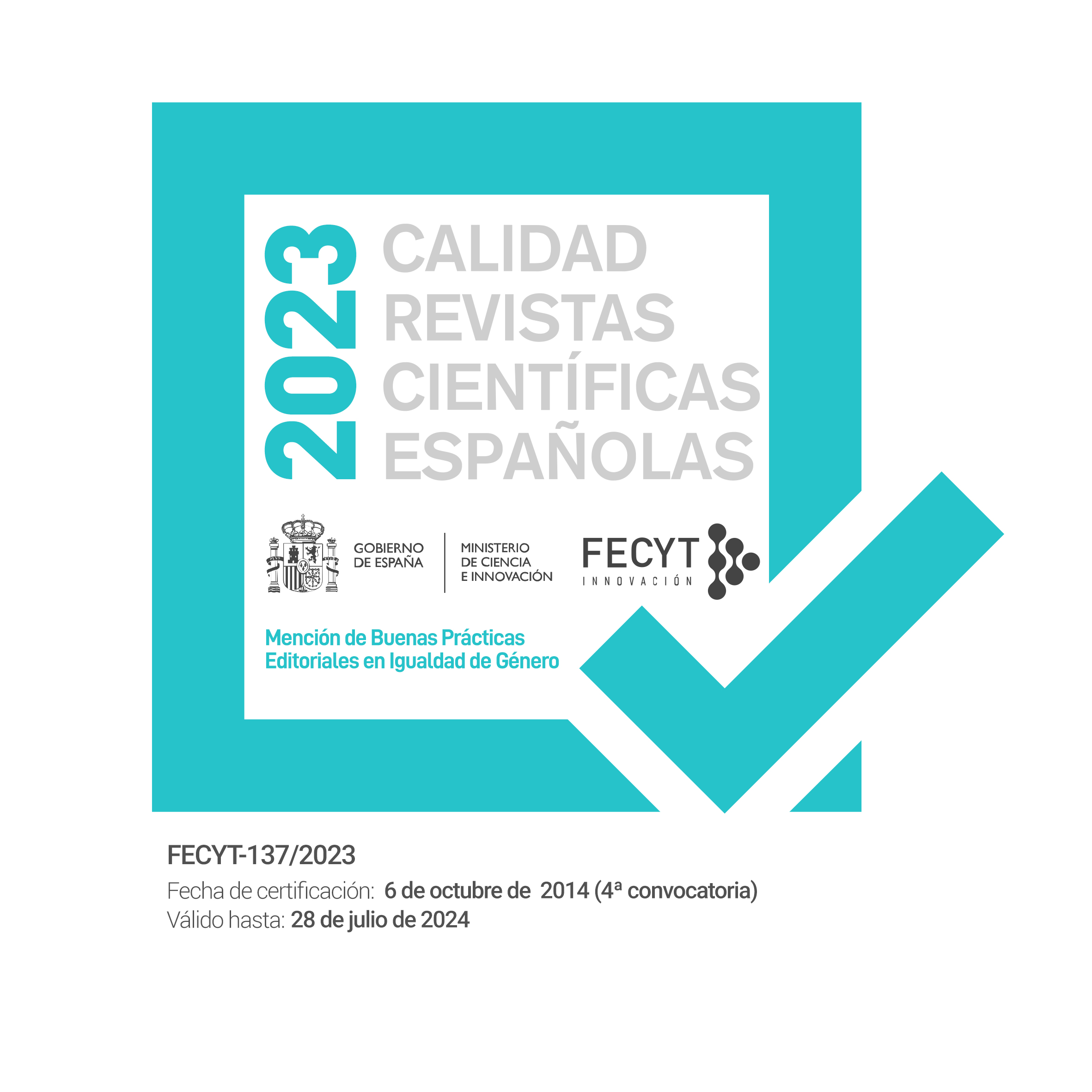Revisión histórica y conceptual de la autoría y sus implicaciones en el medio televisivo: el concepto de autor en las series de televisión contemporáneas estadounidenses
DOI:
https://doi.org/10.31921/doxacom.n28a04Palabras clave:
Autoría, showrunner, series de televisión, teoría del autor, proceso colaborativoResumen
El presente artículo tiene como objetivo realizar una revisión histórica y conceptual de la autoría en la producción televisiva, tomando como referente la Politique des Auteurs francesa aplicada a la televisión estadounidense. Con dicha finalidad, desde una metodología cualitativa, se lleva a cabo un análisis bibliográfico y documental del concepto de autor en la industria del cine y la televisión. Pese al carácter colaborativo del proceso de producción televisiva, los resultados revelan la significación en éste de una autoría individual: el productor ejecutivo de series de ficción televisiva, conocido con el término de “showrunner”. Estamos ante el máximo responsable de la producción del proyecto, que aplica un estilo creativo personal en el conjunto de su obra audiovisual. Dicha autoría, influenciada por la cadena de televisión y los espectadores, promueve la consideración de las series de ficción como un producto cultural de calidad e influye en las estrategias de promoción del mismo.
Descargas
Citas
Astruc, A. [1948] (1999): “The Birth of a New Avant-Garde: ‘La caméra-stylo’.”, in Corrigan, T. (ed.): Film and Literature: An Introduction and Reader. Upper Saddle River, NJ: Prentice-Hall, pp. 158-162.
Baecque, A. (2013): La política de los autores: Manifiestos de una generación de cinéfilos. Barcelona: Paidós.
Barthes, R. [1968] (1987): “La muerte del autor.”, in El susurro del lenguaje. Más allá de la palabra y de la escritura. Barcelona: Paidós, pp. 65-71.
Bazin, A. [1957] (2003): “De la política de los autores.”, in
Baecque, A. (ed.): La Política de los autores: Manifiestos de una generación de cinéfilos. Barcelona: Paidós, pp. 91-105.
Behlmer, R. (1972). MEMO from David O. Selznick. New York: The Viking Press.
Bennett, T. (2014): Showrunners: The Art of Running a TV Show. London: Titan Books.
Benshoff, H. M. (2016): Film and television analysis. New York: Routledge, Taylor & Francis Group.
Blakey, E. (2017): “Showrunner as Auteur: Bridging the Culture/Economy Binary in Digital Hollywood.”, Open Cultural Studies, vol. 1, n. 1, pp. 321-332. Retrieved from https://doi.org/10.1515/culture-2017-0029 [Consulted 01/10/2018]
Caldwell, J. T. (1995): Televisuality. Style, Crisis, and Authority in American Television. New Brunswick: Rutgers University Press
Campbell, R.; and Reeves, J. L. (1990): “Television Authors: The Case of Hugh Wilson.”, in Thompson, R.J.; and Burns, G. (eds.):
Making Television: Authorship and the Production Process. New York: Praeger, pp. 3-18.
Cantor, M. G. (1988): The Hollywood TV producer. His work and his audience (2nd ed.). New Brunswick and Oxford: Transaction Books.
Cantor, M. G.; and Cantor, J. M. (1992): Prime-time television. Content and control (2nd ed.). Newbury Park: The Sage Commtext Series.
Casetti, F. (1994): Teorías del cine, 1945-1990. Madrid: Cátedra.
Chaudhuri, A. (2013): “Auteur Theory and its Implications.”, International Journal of Advancements in Research & Technology, vol. 2, n. 11, pp. 77-89. Retrieved from http://www.ijoart.org/docs/Auteur-Theory-and-its-implications.pdf [Consulted 04/20/2018]
Corrigan, T. (ed.) (1999): Film and Literature: An Introduction and Reader. Upper Saddle River, NJ: Prentice-Hall.
Cuevas, E. (1994): “Notas sobre la ‘teoría del autor’ en ficciones audiovisuales.”, Communication & Society, vol. 7, n. 1, pp. 155-164. Retrieved from https://www.unav.es/fcom/communication-society/es/articulo.php?art_id=224#C02 [Consulted el 10/13/2018]
Dunleavy, T. (2018): Complex Serial Drama and Multiplatform Television. New York: Routledge.
Dunne, P. (2007): “Inside American Television Drama. Quality is Not What is Produced, But What it Produces.”, in McCabe, J.; and Akass, K. (eds.): Quality TV: Contemporary American Television and Beyond. New York: I.B. Tauris, pp. 98-110.
Fisk, C.; and Szalay, M. (2017): “Story Work: Non-Proprietary Autonomy and Contemporary Television Writing.”, Television & New Media, vol. 18, n. 7, pp. 605-620. Retrieved from https://doi.org/10.1177/1527476416652693 [Consulted 10/13/2018]
Foucault, M. [1969] (1999): “¿Qué es un autor?”, in Entre filosofía y literatura. Obras esenciales. Vol. I. Barcelona: Paidós, pp: 329-360
Galindo-Pérez, J. M. (2015): “Del autor en la historia del cine. Revisiones y nuevas vías.”, Zer - Revista De Estudios De Comunicación, vol. 20, n. 39, pp. 49-66. Retrieved from: https://doi.org/10.1387/zer.15517 [Consulted 10/13/2018]
García-Fanlo, L. (2016): El lenguaje de las series de televisión. Buenos Aires: Editorial Universitaria de Buenos Aires (EUDEBA).
García-Martínez, A. N. (2014): “El fenómeno de la serialidad en la tercera edad de oro de la televisón.”, in Fuster, E. (ed.): La figura del padre nella serialitá televisiva. Roma: Pontificia Universitá della Santa Croce, pp. 19-42.
Gray, J.; and Johnson, D. (eds.) (2013): Companion to Media Authorship. Massachusetts: Wiley-Blackwell.
Hadas, L. (2014): “Authorship and Authenticity in the Transmedia Brand: The Case of Marvel´s Agents of S.H.I.E.L.D.”, Networking Knowledge: Journal of the MeCCSA Postgraduate Network, vol. 7, n. 1, pp. 7-17. Retrieved from https://ojs.meccsa.org.uk/index.php/netknow/article/view/332 [Consulted 10/14/2018]
Hills, M. (2013): “From Chris Chibnall to Fox: Torchwood's Marginalized Authors and Counter-Discourses of TV Authorship.”, in Gray, J., and Johnson, D. (eds.): Companion to Media Authorship. Massachusetts: Wiley-Blackwell, pp. 200-220.
Jensen, M. (2017): “From the Mind of David Simon: A Case for the Showrunner Approach.”, International Journal of TV Serial Narratives, vol. 3, n. 2, pp. 31-42. Retrieved from https://doi.org/10.6092/issn.2421-454X/7610 [Consulted 10/13/2018]
Johnson, D. (2013): “Participation is Magic: Collaboration, Authorial Legitimacy, and the Audience Function.”, in Gray, J., and Johnson, D. (eds.): Companion to Media Authorship. Massachusetts: Wiley-Blackwell, pp. 133-157.
Kirkpatrick, S. (2015): Writing for the Green Light. How to Make your Script the One Hollywood Notices. New York: Focal Press.
Kompare, D. (2011): “More ‘Moment of Television’: Online Cult Television Authorship.”, in Kackman, M. et al. (eds.): Flow TV: Television in the Age of Media Convergence. New York: Routledge, pp. 95-113.
Kubey, R. (ed.) (2009): Creating Television. Conversations with the People Behind 50 Years of American TV. New York: Routledge.
Lotz, A. (2009): “Industry-Level Studies and the Contributions of Gitlin´s Inside Prime Time.”, in Mayer, V. et al. (eds.): Production Studies. Cultural Studies of Media Industries. New York: Routledge, pp. 25-38.
Maio, B. (2011): “HBO e la politica del network-autore.”, in Pérez-Gómez, M. A. (ed.): Previously On. Interdisciplinary Studies on TV Series in the Third Golden Age of Television. Sevilla, España: Biblioteca de la Facultad de Comunicación de la Universidad de Sevilla, pp. 279-289.
Mann, D. (2009): “It´s Not TV, It´s Brand Management TV: The Collective Author(s) of the Lost Franchise.”, in Mayer, V. et al. (eds.): Production Studies. Cultural Studies of Media Industries. New York: Routledge, pp. 99-114.
Mittell, J. (2005): Complex TV: The poetics of contemporary television storytelling. New York: New York University Press.
Newcomb, H.; and Alley, R.S. (1983): The Producer´s Medium. Conversations with Creators of American TV. Oxford: Oxford University Press.
Newman, M. Z.; and Levine, E. (2012): Legitimating Television: Media Convergence and Cultural Status. Nueva York: Routledge.
Pellejero, E. (2012): “Author's Politics and Death of Man: Notes for a Genealogy of Film Criticism.”, Sesión no numerada: Revista de Letras y Ficción Audiovisual, n. 2, pp. 29-53. Retrieved from https://dialnet.unirioja.es/servlet/articulo?codigo=3877156 [Consultado el 09/23/2018]
Perren, A. (2011): “In Conversation: Creativity in the Contemporary Cable Industry.”, Cinema Journal, vol. 50, n. 2, pp. 132-138. Retrieved from http://www.jstor.org/stable/41240699 [Consultado el 10/03/2018]
Perren, A.; and Schatz, T. (2015): “Theorizing television´s Writer-Producer: Re-viewing The Producer´s Medium.”, Television & New Media, vol. 16, n. 1, pp. 86-93. Retrieved from https://doi.org/10.1177/1527476414552907 [Consultado el 10/03/2018]
Romaguera, J.; and Alsina, H., (eds.) (2010): Textos y manifiestos del cine. Estética. Escuelas. Movimientos. Disciplinas. Innovaciones. 5th ed. Madrid: Cátedra.
Rohmer, E. [1955] (1985): “Rediscovering America.”, in Hillier, J. (ed.): Cahiers du Cinéma. The 1950s: Neo-Realism, Hollywood, New Wave. Cambridge: Harvard University Press, pp. 88- 93.
Sanderson, J. D. (2005): ¿Cine de autor? revisión del concepto de autoría cinematográfica. Murcia: Vicerrectorado de Extensión Universitaria.
Santos-Fontenla, C. (ed.) (1974): La política de los autores. Madrid: Editorial Ayuso.
Sarris, A. [1962] (1974): “Notes on the auteur theory in 1962.”, in Mast, G.; Cohen, M.; and Braudy, L. (eds.): Film Theory and Criticism: Introductory Readings. Nueva York: Oxford University Press, pp. 561-564.
Sarris, A. (1967): Interviews with Film Directors. New York: Bobbs-Merrill.
Sarris, A. (1968): The American Cinema: Directors and Directions. New York: E.P. Dutton & Co. Inc.
Schatz, T. (2014): “Film Studies, Cultural Studies, and Media Industries Studies.”, Media Industries Journal, vol. 1, n. 1, pp. 39-43. Retrieved from http://dx.doi.org/10.3998/mij.15031809.0001.108 [Consultado el 09/25/2018]
Scott, J. F. (1975): Film: The Medium and the Market. New York: Holt, Rinehart and Winston.
Stam, R. (2001): Teorías del cine: Una introducción. Barcelona: Paidós.
Steiner, T. (2015): “Steering the Author Discourse: The Construction of Authorship in Quality TV, and the Case of Game of Thrones.”, International Journal of TV Serial Narratives, vol. 1, n. 2, pp. 181-192. Retrieved from https://doi.org/10.6092/issn.2421-454X/5903 [Consultado el 09/10/2018]
Thompson, R. J.; and Burns, G. (eds.) (1990): Making Television: Authorship and the Production Process. New York: Praeger.
Tous-Rovirosa, A. (2009). “El concepto de autor en las series norteamericanas de calidad.”, in Serafim, J. F. (ed.): Autor e autoria no cinema e na televisão. Salvador: EDUFBA, pp. 121-169.
Wollen, P. (1969): “The Auteur Theory.”, in Signs and Meaning in the Cinema. Bloomington: Indiana University Press, pp. 74-115.
Descargas
Publicado
Cómo citar
Número
Sección
Licencia

Esta obra está bajo una licencia internacional Creative Commons Atribución-NoComercial 4.0.



























